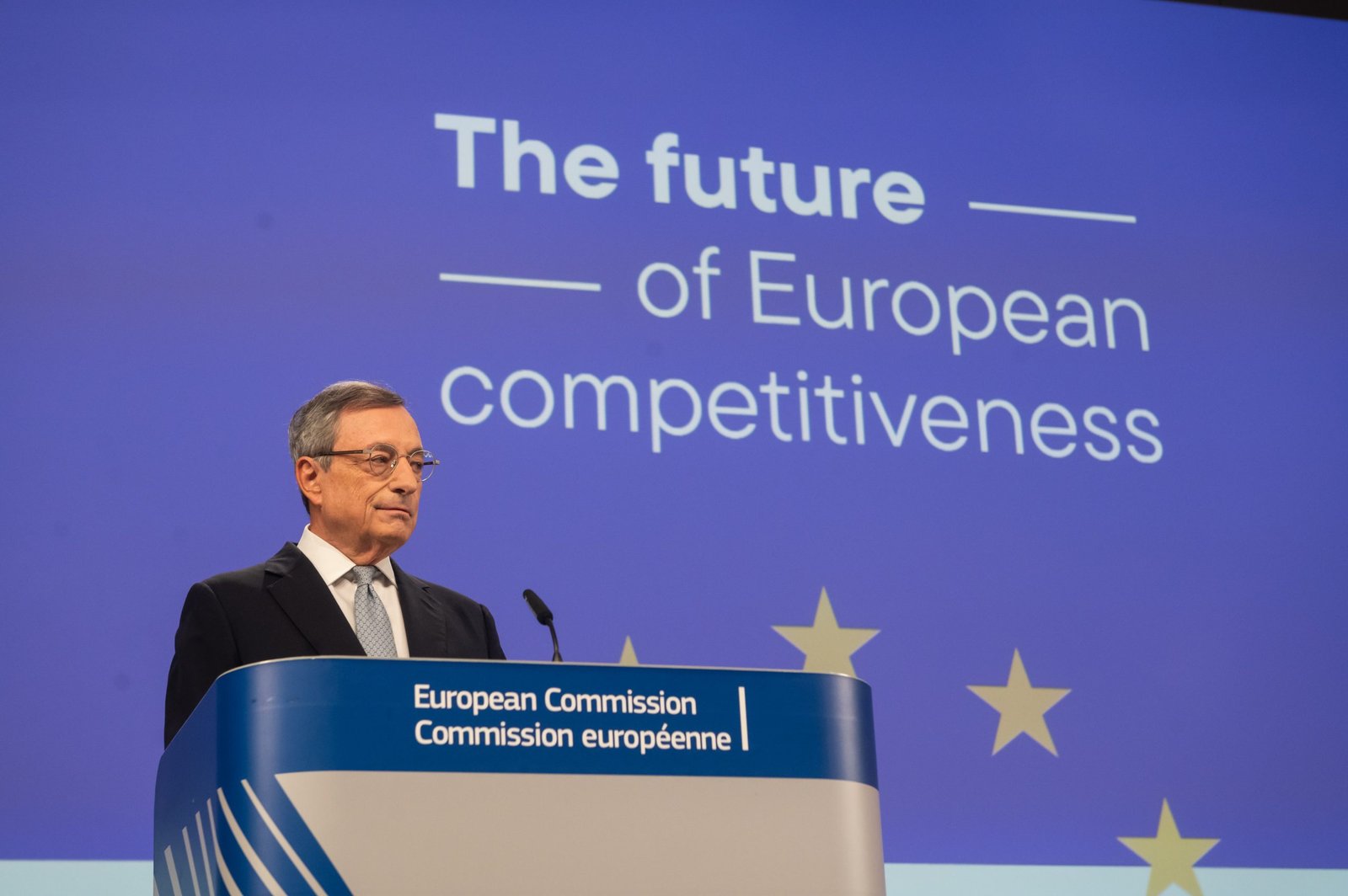Andrea Dugo is an Economist at the European Centre for International Political Economy (ECIPE) in Brussels. His research focuses on European economic and competitiveness policy and the impact of technological change on advanced economies.
In Adam McKay’s 2021 satire Don’t Look Up, two scientists discover a comet headed directly towards Earth. They urge politicians, the media, and business leaders to take action. Everyone nods along, speeches are made, but little happens until it is too late.
The film was fiction but its central themes – the obviousness of the problem and the illusion of time – resonate all too well with Europe’s current economic situation.
One year ago, Mario Draghi released his landmark report on Europe’s competitiveness. It was a masterclass in diagnosis: too little innovation, too few global firms, capital markets that fail to finance growth, and a regulatory jungle that kills scale and agility. None of this was new. Economists and think tanks had been preaching the same for years. Draghi’s contribution was to condense these truths into a single, authoritative warning. The comet was spotted. Its trajectory was clear.
Europe’s leaders promised to act but twelve months later, action is scarce. Of 176 proposals, most still sit in Brussels’ drawers or in early consultations. R&D spending remains stuck at 2.2% of GDP – far below the US, Japan, or South Korea. Capital markets remain underdeveloped, preferring bricks and bonds to innovative firms. Regulatory simplification is promised but the legislative pipeline looks more like a new wave of rules than genuine relief. On industrial policy, Draghi warned against subsidy races between EU members. Ironically, Brussels’ response has been to loosen state aid rules further.
But although everyone agrees Europe’s stagnation is a problem – and the Commission has even produced a “Competitiveness Compass” to turn Draghi’s proposals into action – we are still sitting tight and assessing.
Draghi’s diagnosis is indisputable, which makes the inertia harder to excuse. In 2011, the EU and the US each had economies of just under $16 trillion. Despite a smaller population, America’s economy is 1.5 times larger. Productivity has lagged for decades: in 1990, EU and US hourly labour productivity were equal; now the US is roughly a third higher. America spends about $400 billion more on R&D each year than all EU countries combined. And this at a time when public debt and deficits across much of Europe are swelling. The challenge is, as Draghi put it, “existential.” Pretending otherwise is like reassuring ourselves the comet might somehow miss.
The great illusion is that Europe has time. When Draghi briefed the European Parliament earlier this year, he warned that “our policy responses may be outdated as soon as they are produced.” He was right. The US and China are racing ahead in AI, quantum and green technologies. In these sectors, scale and speed decide winners. European tech startups attract only a tenth of the venture capital that flows to their US peers. While Europe debates for years, others act in months. Every delay, every half-measure, widens the gap.
The consequences are not abstract: a continent that fails to grow loses fiscal space, geopolitical weight and the ability to fund its welfare state. Without productivity growth, ageing societies cannot sustain living standards. Without globally competitive firms, Europe cannot shape standards or secure its own technologies. Without a vibrant economy, its democratic strength erodes. This is Europe’s comet – and it is already entering the atmosphere.
What is to be done? Draghi’s report offers the blueprint: a dramatic rise in R&D spending, channel private savings into productive risk capital, cut regulatory knots that prevent firms from scaling across the Single Market. But the agenda must go further. A European ARPA-like agency could spearhead breakthroughs in AI, quantum, biotech, and other deep-tech sectors.
Energy reform is vital – restructuring electricity markets and easing costs for energy-intensive industries. A European Defence Industrial Authority would consolidate procurement and build scale, while a true Single Market requires removing lingering internal barriers to cross-border business. Policy recommendations are in no short supply – political will is.
In Don’t Look Up, politicians delay, distracted by polls and special interests, until it is too late to act. Europe still has a window. But windows close. European leaders cannot simply acknowledge the problem by publishing a report or hosting a summit.
“We must genuinely fear for our self-preservation,” Draghi warned. Unless Europe acts now, it will soon find that the comet has already struck.
In Don’t Look Up, politicians delay, distracted by polls and special interests, until it is too late to act. Unless Europe acts now, it will find that the comet has already struck





